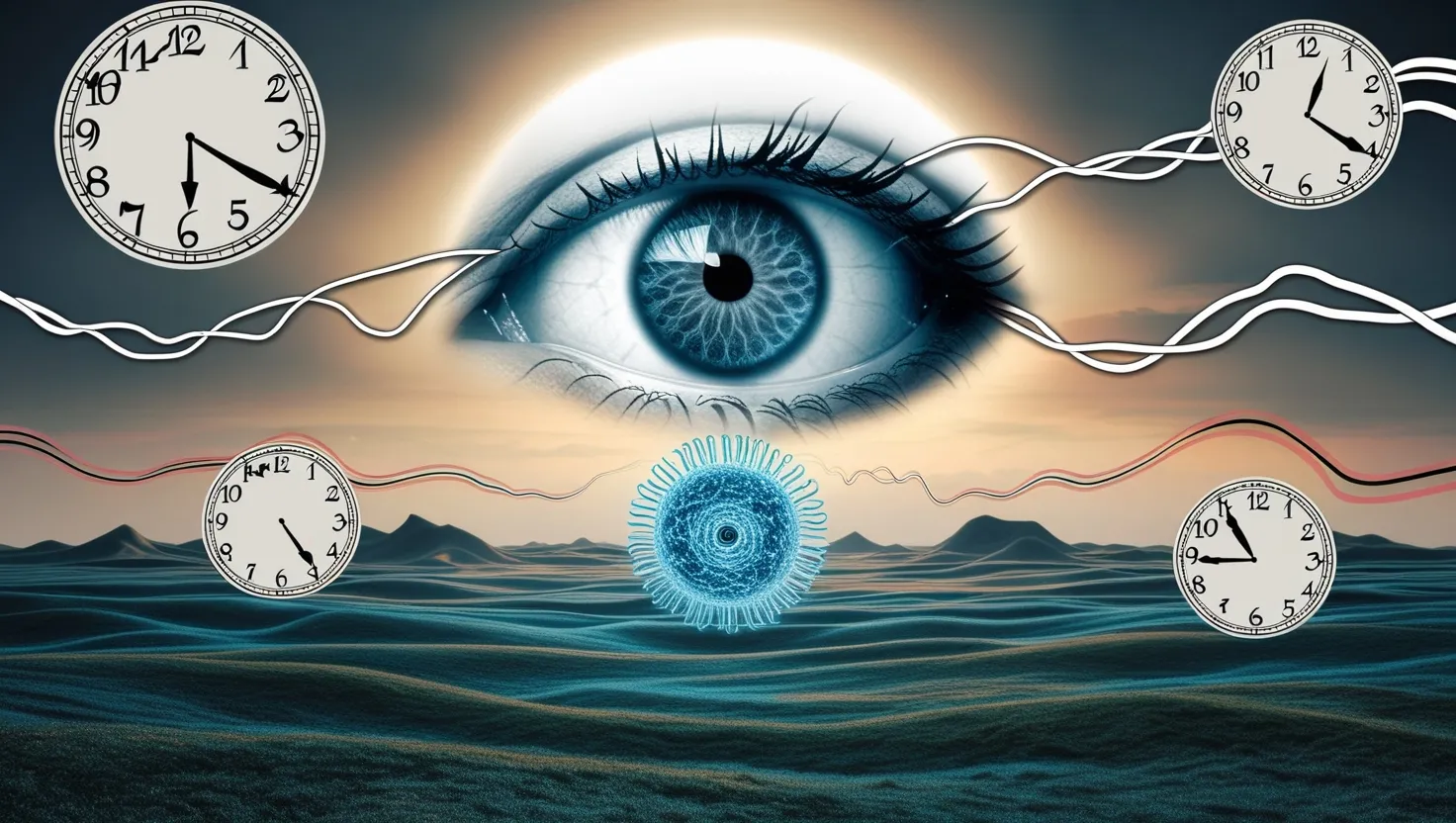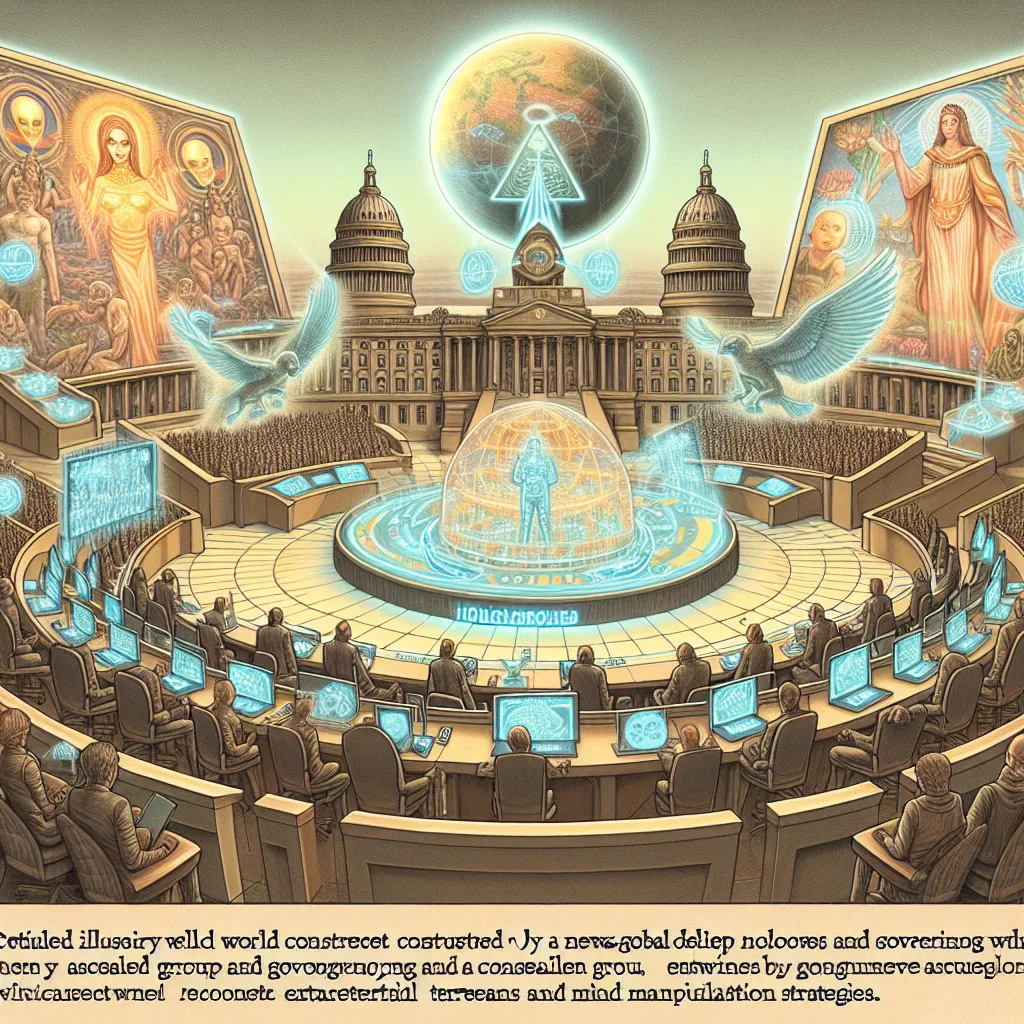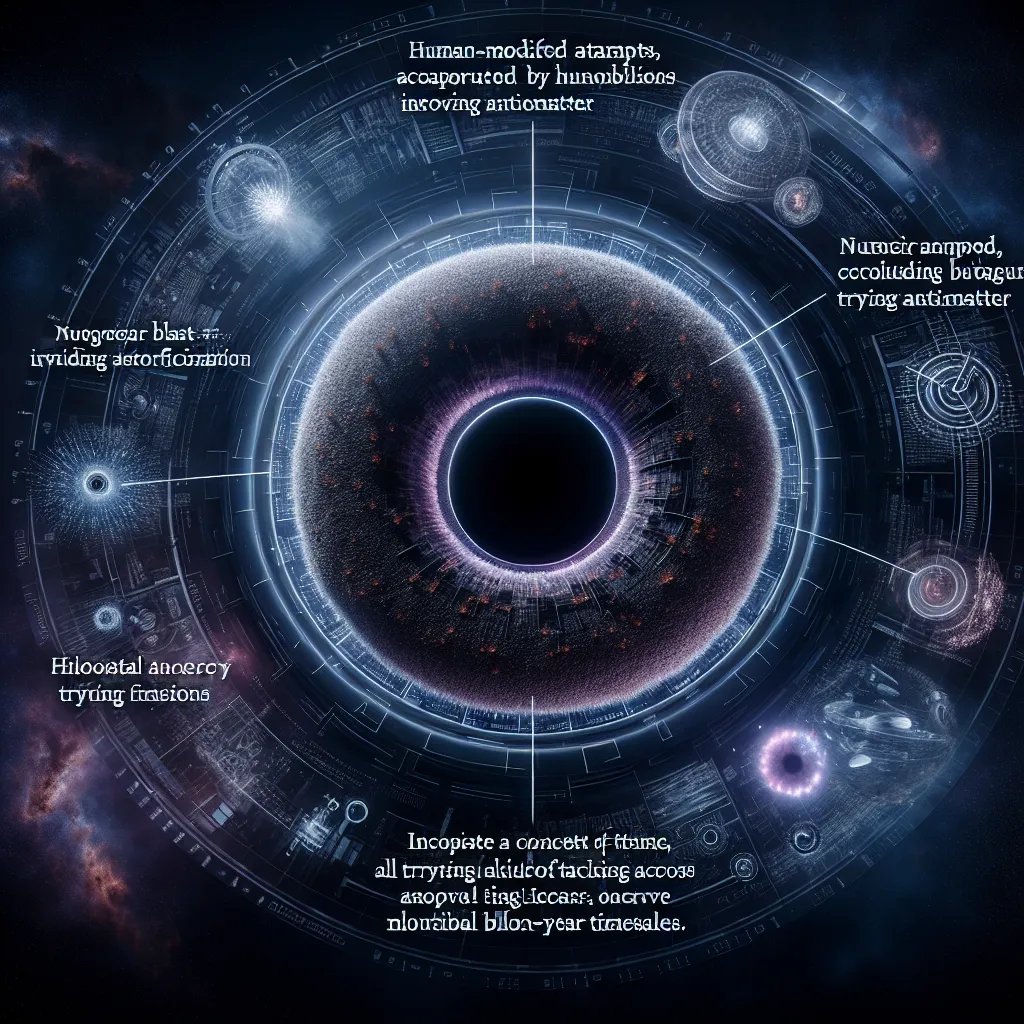In the realm of quantum mechanics, there exists a phenomenon that challenges our conventional understanding of time and observation. The Quantum Zeno Effect, named after the ancient Greek philosopher Zeno of Elea, suggests that frequent measurements of a quantum system can effectively “freeze” it in its current state, preventing it from evolving. But what if this effect extends beyond the microscopic world and into the realm of human consciousness? Could our minds be constantly shaping reality through the act of observation?
To understand this concept, let’s start with Zeno’s original paradox. Zeno argued that motion is an illusion because, at any given instant, an object appears to be at rest. This idea, though flawed in the classical sense, finds an intriguing parallel in quantum mechanics. In the quantum world, particles exist in a state of superposition, meaning they can be in multiple states simultaneously until observed. When we measure these particles, their wavefunction collapses, and they settle into a definite state.
The Quantum Zeno Effect takes this a step further. By measuring a quantum system frequently enough, we can prevent it from transitioning to a different state. Imagine watching a video that is loading; if you keep checking on it, it seems like the loading process never advances. This is because each time you measure the system (or check the video), it resets to its initial state, effectively freezing its evolution.
This phenomenon has been experimentally proven. For instance, researchers at Cornell used the Quantum Zeno Effect to reduce the tunneling of atoms at extremely cold temperatures. Normally, these atoms would tunnel from one place to another due to their near-zero velocity, but by shining an imaging laser on them frequently, the researchers were able to disrupt this process and keep the atoms in their initial positions.
But what if this principle applies not just to particles, but to our own consciousness? Some theorists suggest that our minds could be constantly collapsing quantum possibilities, shaping our reality moment by moment. This idea is rooted in the concept that consciousness plays a role in the collapse of the wavefunction. When we focus our attention on something, we might be causing the wavefunction to collapse into a specific state, effectively choosing which reality we experience.
Consider the power of meditation or the placebo effect. During meditation, our focused attention can alter our brain activity and even influence our physical health. Similarly, the placebo effect shows that our belief in a treatment can have real, measurable effects on our bodies. Could these phenomena be examples of the Quantum Zeno Effect in action, where our consciousness is constantly measuring and shaping our reality?
Henry Stapp, a physicist, has proposed that the Quantum Zeno Effect could be the mechanism by which effortful attention impacts brain activity. According to Stapp, when we pay attention to a particular thought or idea, we are causing a repeated collapse of the wavefunction towards that specific state. This repeated measurement locks the brain into that state, making it more likely to manifest in our reality. This theory suggests that our minds are not just passive observers but active participants in shaping our experiences.
The implications of this idea are profound. If our thoughts and attention can literally sculpt the world around us, then we are all unwitting reality architects. This raises questions about the nature of free will and the power of consciousness. Are we creating our reality through our observations, or is this just another quantum leap of imagination?
To delve deeper, let’s consider the concept of decoherence, which explains how the environment interacts with a quantum system to cause the collapse of its wavefunction. In the context of the Quantum Zeno Effect, decoherence can be seen as the continuous coupling of the system to its environment, which in turn causes the wavefunction to collapse repeatedly. If we extend this to human consciousness, it suggests that our minds are constantly interacting with our environment, shaping and reshaping our reality through this process.
The applications of the Quantum Zeno Effect are not limited to theoretical discussions about consciousness. In quantum computing, this effect could be used to stabilize fragile quantum states, reducing errors and improving the coherence times of qubits. In biology, some researchers believe that the Quantum Zeno Effect might play a role in how birds navigate using Earth’s magnetic field, essentially creating a quantum compass.
However, there is also an “Anti-Zeno Effect” to consider, where frequent measurements can actually accelerate the evolution of a quantum system. This duality highlights the complex and often counterintuitive nature of quantum mechanics. It shows that the relationship between observation and reality is far more nuanced than a simple “freeze” or “accelerate” mechanism.
As we explore this fusion of physics and philosophy, we are forced to question everything we thought we knew about the nature of existence. The Quantum Zeno Effect challenges us to consider whether our reality is fixed or if it is dynamically shaped by our observations. It invites us to ponder the role of consciousness in the quantum world and whether our thoughts have the power to sculpt reality.
In this mind-bending world, the line between observer and observed becomes blurred. We are no longer just passive viewers of reality; we are active participants, constantly measuring and shaping the world around us. Whether this is a literal truth or a metaphorical one, the Quantum Zeno Effect offers a fascinating glimpse into the mysteries of quantum mechanics and the power of human consciousness.
As we continue to explore and experiment, we are not just freezing particles in time; we are uncovering the fundamental nature of reality at its smallest scales. The implications are far-reaching and exciting, from quantum computing to biological processes, and they remind us that the quantum world is full of surprises waiting to be unraveled.
In the end, the Quantum Zeno Effect is more than just a quirky phenomenon; it is a window into the intricate dance between observation, consciousness, and reality. As we delve deeper into this mystery, we may find that our thoughts are indeed sculpting the world around us, one measurement at a time.






